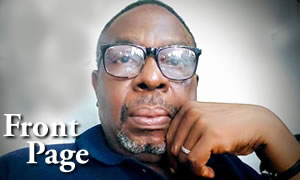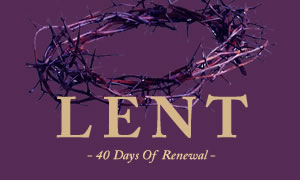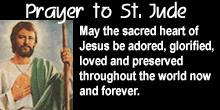


 Have you ever had a breakthrough? You have been working hard at a project and not making much progress, when everything suddenly comes into focus and you know exactly how to proceed.
Have you ever had a breakthrough? You have been working hard at a project and not making much progress, when everything suddenly comes into focus and you know exactly how to proceed.
Or have you ever struggled to understand a new concept, perhaps in math class, and then finally the “lightbulb” turns on, and it makes sense to you?
If you have experienced a breakthrough, then you know how exciting and uplifting it can be. You grow in confidence. You have a new perspective. You feel freer and more empowered. At the very least, you are glad to have been freed from all your work and worry!
Let’s take a look at one person from the Bible who experienced a kind of breakthrough in her spiritual life—a breakthrough of conversion. Her name is Lydia, and her story is told in Acts 16.
A Godly Businesswoman. Lydia lived in Thyatira, a city in Asia Minor that was a few hundred miles from Philippi. She must have been rather well-off, since she also owned a home in Philippi (Acts 16:14, 40). Luke tells us that she was a dealer in purple-dyed cloth. Since purple dye was the most costly to produce, it was usually reserved for only the finest of fabrics. So the fabrics that Lydia bought and sold were likely meant for the wealthy people of the time.
In addition to being well-off, Lydia must also have been very shrewd. It took a lot for a woman to be successful in the patriarchal society of the ancient Middle East—not to mention, she worked in a very competitive business. She probably kept her finger on the pulse of her trade all the time—well, almost all the time. Unlike most of her competitors, Lydia chose not to do business on the Sabbath.
Instead, she spent the day worshipping God. And her decision was richly rewarded.
Scripture tells us that Lydia attended a prayer gathering with some other women each Sabbath. Because of the sabbath observance, most scholars assume that Lydia was a “God fearer,” or a Gentile who had come to embrace Judaism. She and her fellow worshippers probably knew about the God of the Old Testament, but had not heard about Jesus. They were upright women who loved the Lord and sought to please him with their lives. Yet as we read on, we see how God used St. Paul to open their eyes in new and exciting ways.
She “Opened Her Heart.” The story of Lydia opens with Paul and his companions being led by the Holy Spirit to extend their missionary work into Macedonia, the first European city they would visit. Their first stop was the city of Philippi. When they arrived, they did what they had done in every other place they had visited: they looked for a synagogue. There seemed to be none in the area, but they did learn about Lydia and the other God-fearing women, who gathered by the river every Sabbath. So off they went to meet them.
When they arrived at the gathering, Paul and his friends began to speak with the women. We don’t know exactly what was said, but we can assume that it was about Jesus: who he is, why he became a man, why he died on the cross and rose again. It’s possible too that Paul told the story of how Jesus had revealed himself on the road to Damascus.
As Paul shared the gospel message, something happened to Lydia. The Holy Spirit came on her, and she “opened her heart . . . to what Paul was saying” (Acts 16:14). And so began the Philippian church—the first church on the continent of Europe.
God poured out a special grace of conversion that day. He took Lydia’s limited understanding and expanded it. He helped Lydia grasp the gospel Paul preached and gave her the grace to respond to it in a dramatic way.
Three Key Elements. This story gives us a window into the way people joined the Church in the age of the apostles. For the first few centuries, in fact, the typical process was threefold: evangelization, followed by conversion, followed by baptism.
The order is different today, but all three elements remain: evangelization—the sharing of the gospel; conversion—a decision to turn away from sin and to turn toward Christ; and baptism—the outpouring of God’s grace to cleanse us from our sins and make us children of God and members of the Church. Let’s look at each of these three elements.
1. Evangelization-The Spirit and the Word. The first is evangelization: sharing the good news about Jesus Christ, the Son of God who died on the cross and rose again. This message can come directly from the Holy Spirit, as it did for Paul, but it usually comes as the Spirit speaks through a believer who has already experienced conversion (Acts 9:1-19). In Lydia’s case, the Spirit worked through Paul and his companions.
Whatever the source of the message, evangelization is always, first and foremost, a work of the Holy Spirit. Only he can open a person’s heart-as he did for Lydia-and reveal Jesus in a whole new way. Only he can pierce a person’s heart with the promise of new life. Only he can reveal sin and pour out the healing love of the Father. Whether it happens in a split second or over a period of days or months or even years, only the Holy Spirit can “evangelize” a person in a way that leads to a life-changing conversion.
2. Conversion-To “Turn.” In his parable of the prodigal son, Jesus illustrates two different but related dimensions of conversion: initial conversion and ongoing conversion. Initial conversion is the primary decision to turn away from sin and to surrender our life to Christ. We can see this in the prodigal son. “Coming to his senses,” he abandoned his former way of life and returned to his father’s house (Luke 15:17).
As for the boy’s older brother, he was already living with his father. He was already an obedient son, working hard on his father’s estate. But he still had areas of self-righteousness, anger, and resentment to deal with. You could say that he needed a deeper conversion so that he could enjoy living in his father’s house even more. As the father in the parable did with this young man, God is constantly inviting us to make decisions that will turn us further away from sin and draw us closer to Jesus. Ongoing conversions like these come about as we persist in prayer and at Mass, as we strive to obey God’s commands, and as we reach beyond ourselves to serve other people.
Lydia experienced an initial conversion because her heart was open to Paul’s message. She chose to accept Jesus as her Lord and Savior. Now she was set on the path of discipleship, a path filled with countless opportunities to experience a deeper and deeper conversion to the Lord.
3. Baptism—Members of One Body. According to the Catechism of the Catholic Church, baptism cleanses us of original sin, makes us into a new creation, and “incorporates us into the Church,” the body of Christ (CCC, 1267). In the early years of the Church, baptism came after a person had heard the gospel, believed in Christ, and confessed that Jesus is risen from the dead. Over time, the Church began to baptize infants, charging the child’s parents and godparents to accept the primary responsibility of evangelizing that child and bringing him or her to a mature decision to turn to Christ.
After Lydia heard Paul’s gospel, she “opened her heart” to the Lord and came to faith in him (Acts 16:14). She experienced conversion to Christ and then was baptized, along with her household (16:15). In her case, as well as in the case of most of the other early Christians, Lydia’s conversion—her decision to live for Christ—was sealed and empowered by the grace of God through this sacrament.
The Joy of Conversion. Conversion is a combination of God’s all-powerful grace and our human decision. We freely choose to give our lives to Jesus, but we would not be able to make such a choice if it weren’t for the Holy Spirit showing us our need for Christ.
After our initial experience of conversion, we still need God’s grace in the Eucharist; we still need his grace in the wisdom of Scripture; we still need the grace of his mercy in the Sacrament of Reconciliation. Without the grace that is constantly available in gifts like these, we are more likely to lose sight of Jesus, become susceptible to temptation, and fall into sin.
Lydia probably remembered that sabbath gathering for the rest of her life. Far from being just one among many such services, it was the day that the Holy Spirit opened her heart to the gospel. It was the day that she met Jesus and experienced the power of the Holy Spirit and the forgiveness of her sins in a new way.
What happened to Lydia and her household can happen to us as well. God wants everyone in our family to experience the joy of conversion. He wants all of us to come to know the difference between living only for this world and living for Jesus.
At the same time, he also wants us to wake up every day and enter the “School of Christ,” so that the Holy Spirit can continue to teach us. Every day, the Spirit wants to show us how to pursue ongoing conversion until the day when we finally see Jesus with unveiled faces—that is, with hearts that have been purified from all the residue of sin.


I have been thinking a great deal about my experience at Reconciliation this past Saturday. I felt an intense and unexplainable urge to go and confess my sins when I woke up that morning. I try to go every six weeks or so, but this was no routine visit to the priest for me. I needed to unburden myself of the numerous venial sins I had committed since I last participated in this Sacrament.
Purest Gold: God's Refining Fire in our Lives »
After salvation, many young Christians wonder if there's anything more to their newfound faith than just the security blanket of "being a Christian." Time and time again, God shows himself as a "refiner," and our lives are as gold. God started leading me in this study to understand what He was doing in my life, as well as in the lives of others.
Picking up my pen to write this column, I couldn’t imagine how time flies. Since the last publication of this column I have gone through a lot, especially the loss of my dear mother to whom I dedicate this article. Not only her, but seems I lost a whole generation of my close family.
How to Achieve Business Excellence »
“Do you see a man who excels in his work? He will stand before Kings; He will not stand before unknown men.” Proverbs 22:29
Spiritual Development for our Youth »
Most of us youth in today's fast moving world are easily thrown off by difficulties and worries.
The theme of conversion is a thread that runs all through Lent, but conversion takes on different aspects throughout the phases of Lent. The first two and a half weeks focused on the interior turning of hearts; the liturgy urges the faithful to reflect and examine consciences thoroughly.
Saint Josephine Bakhita »
Feast Day: February 8
Patron Saint Of: Sudan
Saint Josephine Margaret Bakhita was born around 1869 in the village of Olgossa in the Darfur region of Sudan. She was a member of the Daju people and her uncle was a tribal chief. Due to her family lineage, she grew up happy and relatively prosperous, saying that as a child, she did not know suffering.
Catholics Must Fast More Intensely This Lent»
The Norbertine Canons of St. Michael's Abbey have created this digital Lenten retreat so that you can journey through this holy season alongside them. If you want to have one of your best Lenten seasons yet, join us in our Lenten Program "The Great Fast" - https://theabbotscircle.com/the-great-fast-join
When Your Faith Is Put to the Test - Bishop Barron's Sunday Sermon»
Friends, we come now to the Second Sunday of Lent, and we’re on both dangerous and very holy ground with the first reading from the twenty-second chapter of Genesis. The ancient Israelites referred to it as the “Akedah,” which means the “binding”: Abraham binds and is ready to sacrifice Isaac at God’s command.

Copyright © 2002-2024 THE BEACON INTERNATIONAL CATHOLIC MAGAZINE. All rights reserved.
another mc.rufus interactive web design